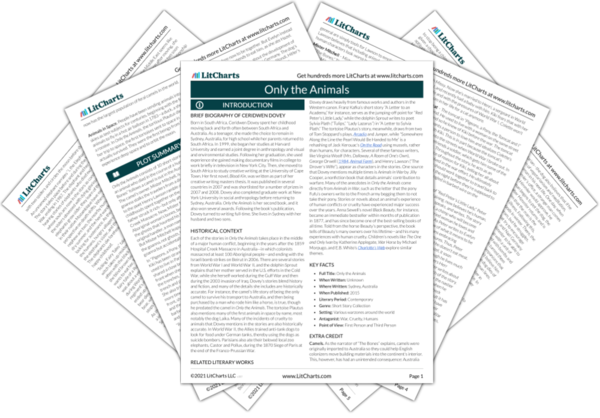Previous
Hundstage: Soul of Dog
|
Previous
Hundstage: Soul of Dog
|
Only the Animals: Somewhere Along the Line the Pearl Would Be Handed to Me: Soul of Mussel Summary & Analysis |
Next
Plautus: A Memoir of My Years on Earth and Last Days in Space: Soul of Tortoise
|
